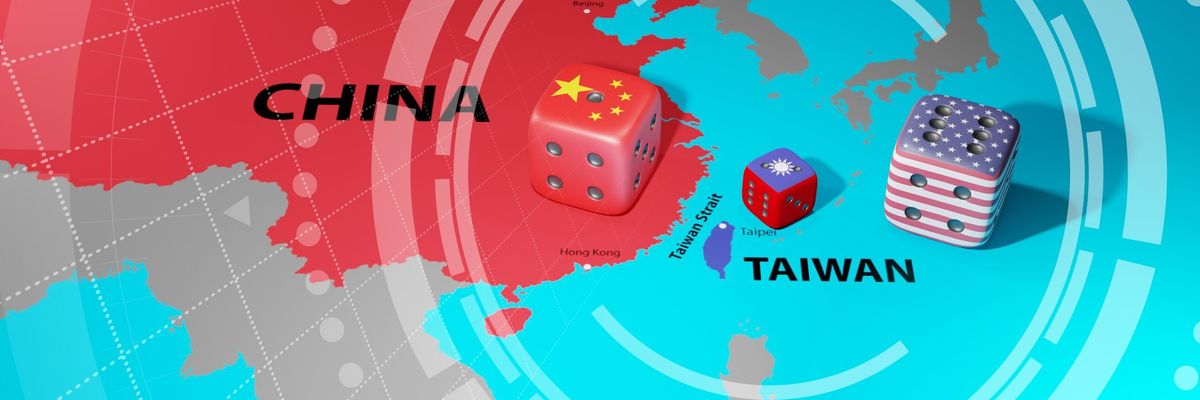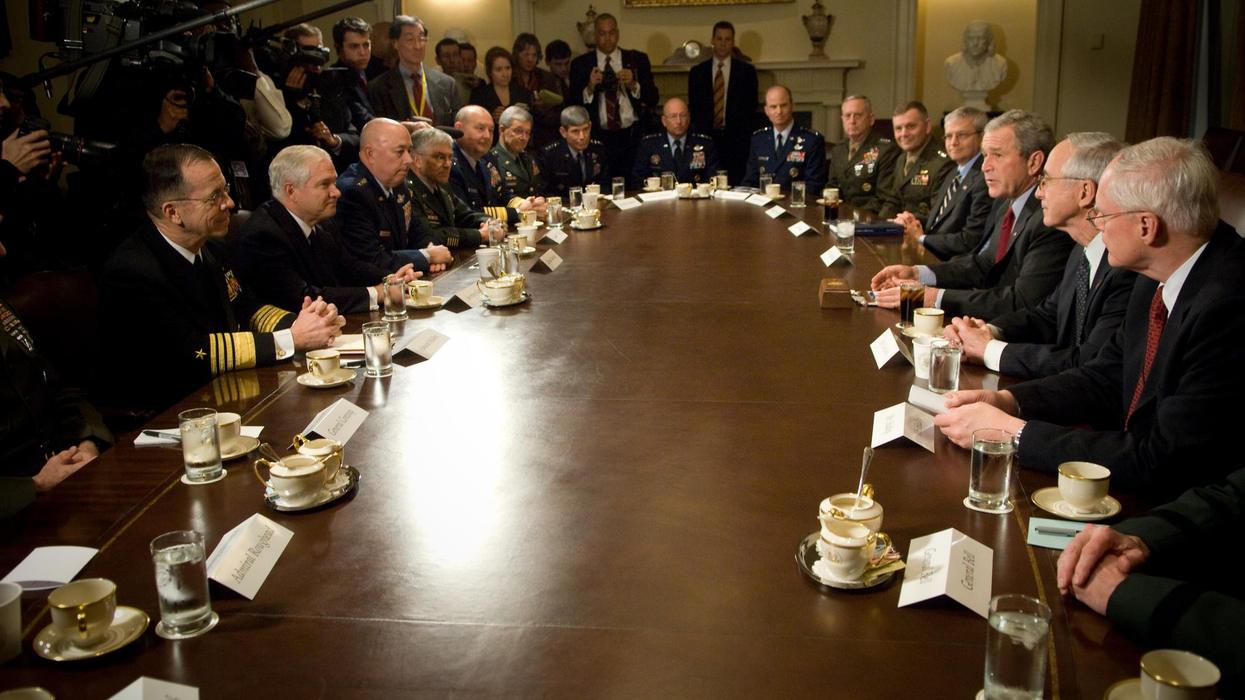The true consequences of Speaker Nancy Pelosi’s visit to Taiwan, against the advice of the White House and China’s strong opposition, have yet to be determined.
While Washington has tried to downplay Pelosi’s visit as a mere continuation of the U.S. policy of strategic ambiguity, the Chinese response has become increasingly bellicose over recent days. In hindsight, however, Pelosi’s visit may turn out to matter less for what it says about the changing status of Taiwan than for what it suggests about the limitations of America’s current global strategy.
The Biden administration seems determined to rally international support and put an end to America’s strategic drift by framing a new contest of “democracies versus autocracies,” which risks increasing global tensions through symbolic overtures that do not meaningfully augment American power.
Pelosi’s trip marks the first by a Speaker of the House since Newt Gingrich’s trip to Taiwan in 1997, where he met with then-President Lee Teng-hui. While in Taiwan, she proclaimed that the trip should be seen as “unequivocal statement that America stands with Taiwan, our democratic partner, as it defends itself and its freedom.” But from Chinese officials’ perspective, this dispute is not about “democracy;” rather, it is the violation of their national sovereignty and historical Chinese identity.
In 1997, a much weaker China was forced to tolerate Gingrich’s trip, but they now see this episode as a mistake that gave support to hopes for Taiwanese autonomy. “A previous mistake does not make the following mistake legitimate,” said Zhang Jun, Chinese Ambassador to the U.N. who currently holds the rotating presidency of the United Nations Security Council. Similarly, Qin Gang, China’s ambassador to the U.S., told CNN that “25 years ago Speaker Gingrich visited Taiwan. It was completely wrong. The Chinese side was firmly opposed to it from the start. The US side should draw a lesson from it, instead of making repeated mistakes…”
Thus, in response to Pelosi’s trip, the Chinese military conducted a series of live-fire drills in areas that directly challenge Taiwan’s coastlines, a conspicuous practice to blockade the island. China is further placing a series of new trade restrictions on Taiwan, including the suspension of natural sand exports and a ban on the import of bread and biscuits from Taiwan. To avoid further provoking China, U.S. Secretary of Defense Lloyd Austin ordered the delaying of a routine test launch of an Air Force Minuteman III intercontinental ballistic missile (ICBM). Notwithstanding the U.S. move, the Chinese reaction has important implications.
First, their assertiveness demonstrates that China is now a fully-fledged peer competitor to the United States with the capacity to retaliate along multiple fronts. The Chinese economy is over 17 times larger than it was in 1997, when GDP stood at a paltry 961.60 billion dollars. Moreover, China’s defense spending has increased from 15 billion dollars in 1997, to 230 billion dollars in 2022. China has also steadily increased the size of its nuclear arsenal, reaching 350 warheads in 2022. All of this means that China can act more forcefully if its vital interests are threatened.
It is also worth remembering that, from Beijing’s perspective, this visit is not just a symbolic excursion by an American representative. The Chinese believe that all recent American administrations have moved with increasing deliberateness to “contain” China’s rise, or what the Chinese believe as China’s return to the international scene. Pelosi’s visit reinforces that hawkish perspective, in much the same way that Biden’s public declaration that Putin “has to go” could be used to lend credence to Russian allegations that democracy promotion is simply a euphemism for regime change.
Second, while the Biden administration is far from being solely responsible for this ratcheting up of global tensions, it is also an intentional policy decision, since it comes at a time when the United States is looking to clarify its strategy and regain control of the global narrative. According to a recent report by The Economist, America is at risk of losing a global argument about the future of international relations and the legitimacy of post-WW2 institutions. Despite the inundation of scenes of horror from Ukraine, two-thirds of the world’s population lives in countries that have refused to sanction Russia following the invasion of Ukraine, and much of the developing world sees the West as “decadent, self-serving and hypocritical.”
Additionally, the United States is profoundly divided domestically, still reeling from the fallout of the January 6 assault on the capital and bracing for contested 2022 midterms and a potentially destabilizing 2024 presidential run by Donald Trump. Framing international politics as an epochal contest of democracy versus autocracy seems to be Biden’s attempt to forge a new political consensus at home and abroad by clarifying what is at stake, reducing multiple conflicts to a single line of contestation.
At some level, the new strategy has clear potential. For example, the Taiwan Invasion Prevention Pact, introduced by Senator Tim Scott (R-S.C.), is one of the few pieces of potential legislation that enjoys the support of both Republicans and Democrats. Confronting China is now one of the rare subjects that brings the Democrats and Republicans together, a not inconsiderable advantage. Moreover, an America that recommits to its international obligations is more likely to sustain its alliance structures in Europe, the Middle East, and Asia.
On the other hand, this nascent democracy-versus-autocracy framework, of which Pelosi’s visit is just one instance, carries severe downside risks that must not be underestimated. Above all, it does nothing to redress real questions about America’s power capabilities in the face of new challenges by revisionist states, but it does threaten to increase global volatility by threatening the strategic interests of rival states like Russia and China in areas of the world where they possess certain in-theater military advantages. A return to strenuous democracy promotion also risks antagonizing allied states, from Saudi Arabia to Turkey, whose support may be crucial in the future.
In the end, then, if China chooses not to escalate, the chief lesson of Nancy Pelosi’s excursion to Taiwan may be that a sequence of well-publicized coups de théâtre is no substitute for a sustainable international strategy.
Whereas previous visits by American politicians displayed American confidence and power, Speaker Pelosi’s visit and its fallout arguably displays American weakness and internal divisions. It is an attempt to recapture the narrative and generate support, ratcheting up a contest of Democracies versus Autocracies when the United States is divided domestically and struggling to find its footing in the international arena. But this is a high risk strategy for merely symbolic gains.
In his Discourses on Livy, Machiavelli warns against offending adversaries without purpose, but that is what we risk doing here: Insulting a great power without tangible gains.

















